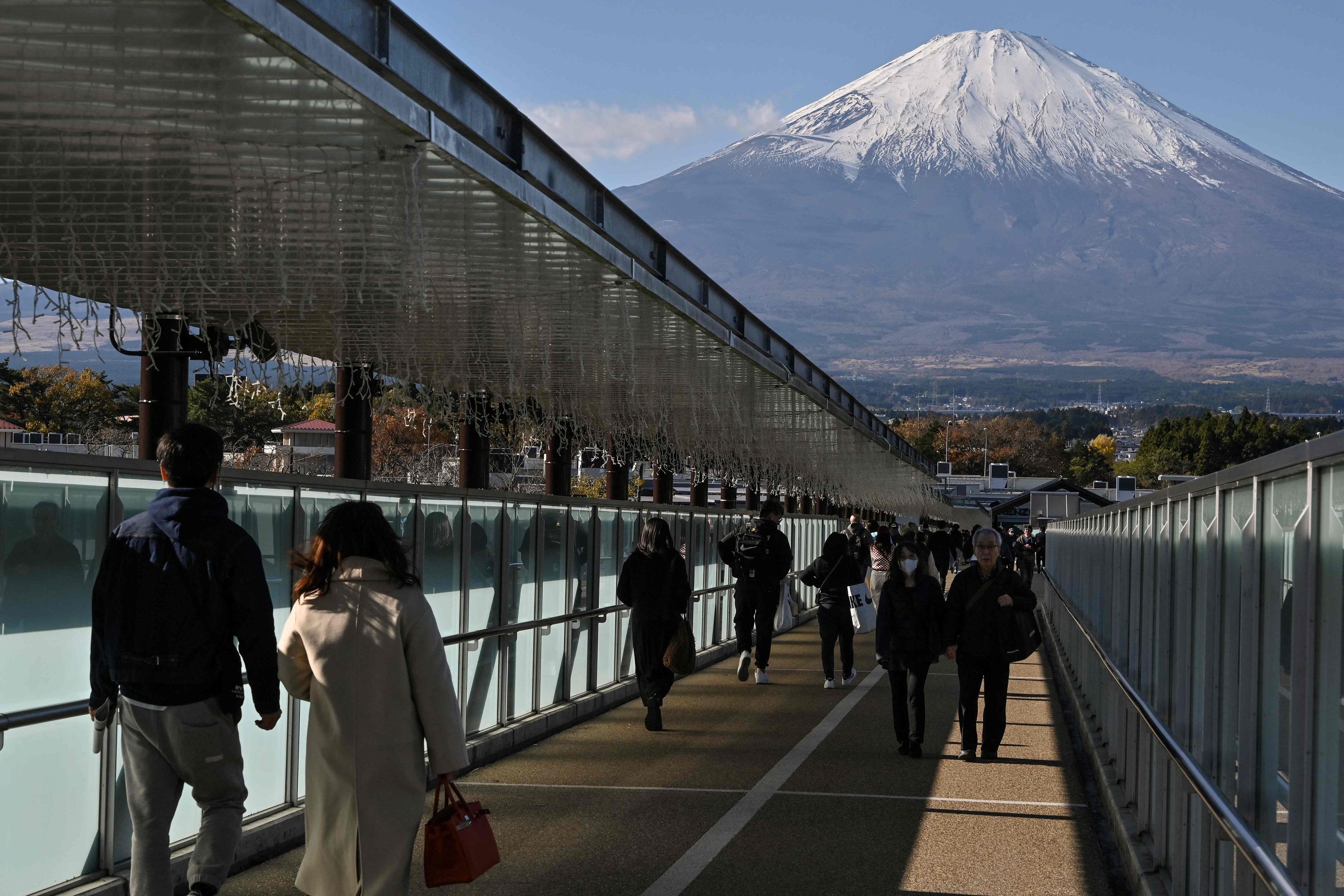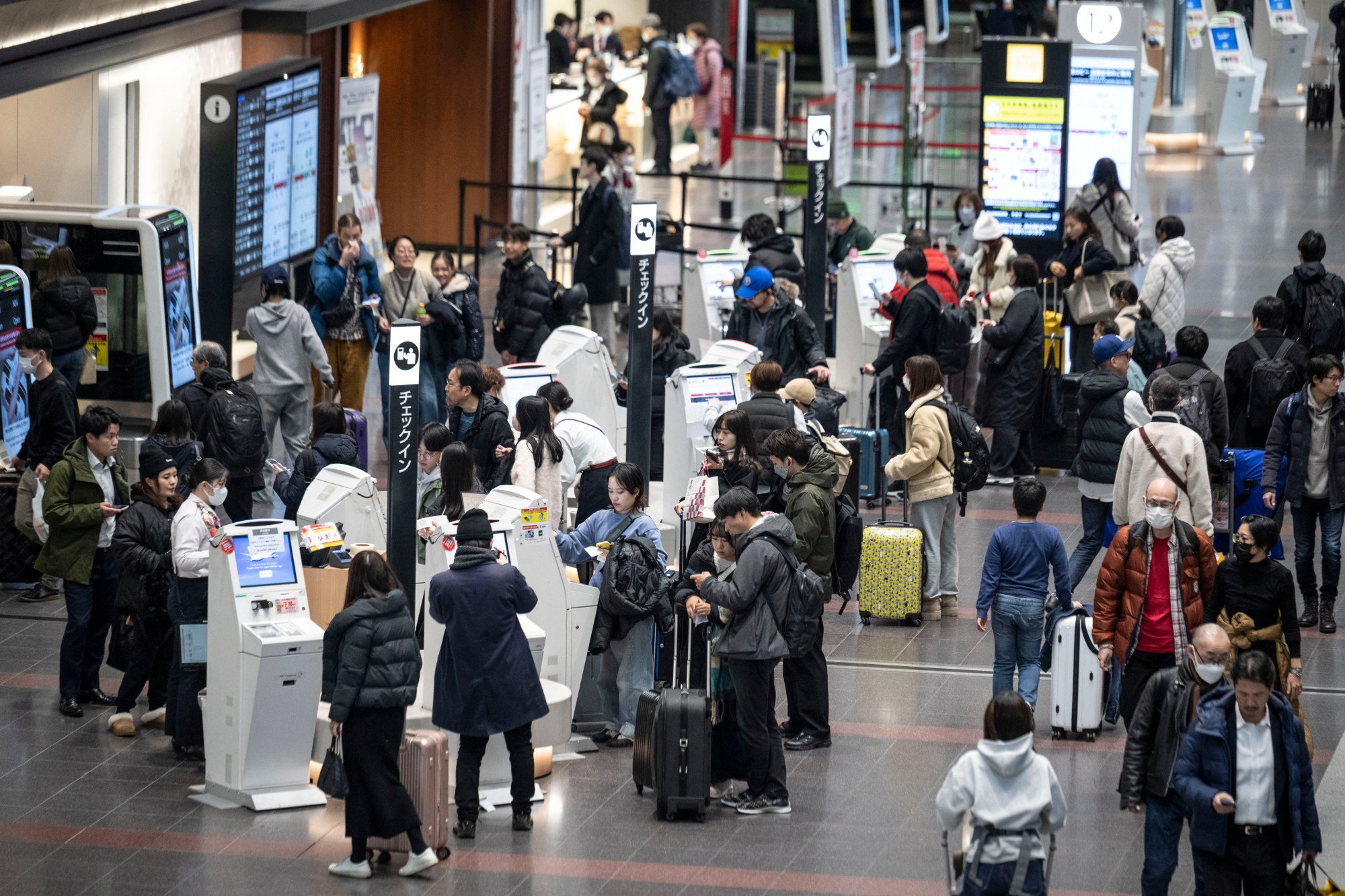Passport puzzle: what is keeping Japanese from overseas travel?
Weak yen, rising flight costs and heightened safety concerns among reasons for only 17.5 per cent of Japanese holding a passport, study finds

Just 17.5 per cent of Japanese currently hold a passport, according to a recent study, a figure that industry experts say reflects the growing preference for domestic travel amid a weak yen, rising flight costs and heightened concerns about safety in many parts of the world.
The figure, drawn from research conducted through the Newt travel app, places Japan well behind several developed economies in terms of international travel readiness. In comparison, about 40 per cent of South Koreans, 50 per cent of US citizens and 60 per cent of Taiwanese hold valid passports.
Those findings align with research by the outbound promotion division of the Japan Association of Travel Agents (JATA), according to executive director Hiroshi Tanimura.
“The research we have done especially indicates that young people are not willing to travel overseas and prefer to travel within Japan,” he told This Week in Asia.
“The weak yen is one big reason why overseas travel is 70 per cent of what it was before the pandemic.”

Even more worrying is that business travel has picked up a lot of the slack, recovering to more than 80 per cent of pre-pandemic figures, leaving the leisure market at just 53 per cent, according to Tanimura.
“On top of the weak yen, flights have become more expensive and that is making people hesitate about booking an overseas holiday,” he said.
Travellers are also being put off by conflicts in the Middle East and the situation in Eastern Europe, he suggests, although it is “too early to say” whether negative press coverage of events in the US are having an impact on reservations to that destination.
Ashley Harvey, a travel marketing analyst who has worked in Japan’s travel sector for more than 15 years, says there has been a gradual decline in the number of Japanese with a passport since the peak years of the 1990s, while the figure stood at 23 per cent a decade ago.
“The coronavirus was the end for a lot of people who looked around the world and concluded that Japan is safe and comfortable and they just never renewed their passports when they ran out,” he said.
“Add to that the effective 35 per cent decline in the value of the yen and the fact that it is difficult for many Japanese to go abroad on the amount that they earn, and this is not really a surprise.”

Harvey anticipates that short-haul destinations such as South Korea and Taiwan – served by low-cost carriers – will remain popular as they are quick and relatively cheap to get to, but it will be “challenging” to win back destinations in Europe and North America that used to be popular.
JATA is making a concerted push to promote foreign destinations, with Vietnam, Southeast Asia and, perhaps surprisingly, Turkey popular with Japanese who are travelling abroad this summer, according to Tanimura.
Unhandled type: inline-plus-widget {“type”:”inline-plus-widget”}
He, however, will not be joining them. Tanimura says he is too busy at work and sky-high prices make it difficult to take a holiday with his family abroad, so he is planning a short trip to Hiroshima later in the summer.